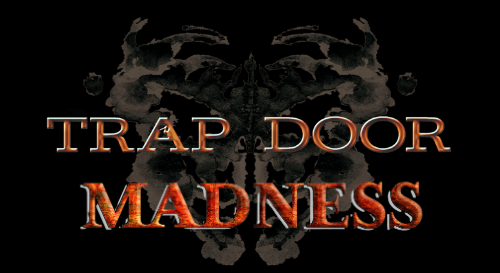Teamwork in Escape Rooms
By: Josh Peet
Escape rooms can be intimidating. You enter the experience with only your wits and your teammates, faced with a litany of puzzles that may seem impossible. However, the truth is that every team has the potential to win, or better yet, earn a spot atop the leaderboard! Keep reading to enhance your Teamwork in Escape Rooms and better your chances of making it onto those leaderboards!
GameMasters
Gamemasters have the challenging task of predicting how a team will do before they take their first steps into the experience. Our Gamemasters observe the behaviors and strategies of winning teams on a daily basis and they’ve compiled this comprehensive Bible of Tips for Working Together as a Team in Escape Rooms. This way you and your team can escape more efficiently.
Communication is Key
The most important facet of a successful Teamwork in Escape Rooms is clear and concise communication. That’s why escape rooms are such popular corporate team-building exercises. In order to succeed, the members of your team must be able to express exactly what they’re thinking as quickly as possible. It’s also crucial that your teammates are good listeners.
Time is of the Essence
Stubborn players are notorious for eating a team’s time! Losing teams often dwell on ideas that ultimately lead nowhere. To win, your team members need some humility and honesty, so they can admit when an idea isn’t panning out and take the initiative to try something new.
The other side of the coin, though, your team must approach every idea exhaustively. If a player gives up on a new idea too soon, they may accidentally breeze past the puzzle’s solution.
Sharing is Caring
Even the best players may forget at times to speak out loud, though. It’s not uncommon for a silent, analytical player to seem like they’re dominating a game solely because they’re solving puzzles alone in their head. However, this is not ideal for Teamwork in Escape Rooms. Remember there is no “i” in team!
What About the Deep Thinkers?
It’s understandable that a player may get quiet when thinking deeply about a puzzle’s solution. Those thoughts, however, need to be shared with the entire team. Another player may be able to notice an unseen pattern or provide a fresh perspective on old information.
Express yourself
Don’t be afraid to express any ideas that you have, even if it seems silly. It’s common for players to hold thoughts in until they hear a validating hint. The few minutes that those players lose to the hesitation to communicate can be the difference between victory and defeat.
Being a good teammate means building up someone’s confidence for expressing an idea, even if it turns out to be wrong.
Leave Your Negativity at the Door
Though it may sound cliché, you and your teammates must believe in yourselves! A negative attitude can be the biggest detriment to a team’s performance. Oftentimes, when teams don’t find a correct solution right away, they start to give in to the thought that they’re not in control of their own performance. This negative thinking minimizes Teamwork in Escape Rooms.
Avoiding Negativity
Players who struggle with these self-deprecating feelings may start to suggest that they need hints to win, or that they’re dumb for not having found the solution already. It’s important that your team works as a support system, reminding one another that they’re in control of their own gameplay. When it comes to Teamwork in Escape Rooms, almost no idea is a dumb idea. There is nothing to lose by trying a code in a lock.
Delegate, Delegate, Delegate
In order to turn your escape room team from a merry gang of amateur puzzle-solvers into a well-oiled machine, you’ll need to delegate different tasks among your group to better facilitate Teamwork in Escape Rooms. Our Gamemasters have also suggested some roles your crew may adopt on their next attempted escape!
The Leader

Though it might seem counterintuitive for Teamwork in Escape Rooms, every good team needs a good leader. One member of your entourage must be able to take charge when situations become chaotic, noisy, or, in some cases, scary. A good leader ensures that every member of the team is on top of their role, but needs to be sure not to impose too much, as to not suck the fun out of the experience.
Who's a Leader
Your leader should also be someone who’s able to help the other players remain calm in times of pressure and assure them that victory is always within reach. They should be the one that coordinates the information from the rest of the team members and keeps track of what has been used and not used in terms of codes and locks.
This would be the person that has the best communication skills and knows what the other members of the group are capable of.
The Double-Checker

As soon as your team enters a room or section, you need one player who dutifully double-checks every object that can be touched, turned, or opened. One mistake which is dreadfully common is the tendency to leave something unchecked! Having a double-checker is a great tactic for Teamwork in Escape Rooms.
The Locksmith
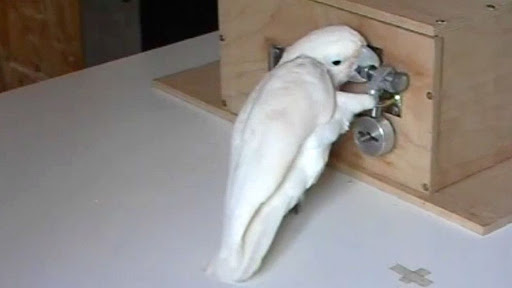
It may also be a good idea to designate one member of your team to be the one to work any combination locks. It’s easy for some groups to get confused about how those combination locks work – such as where to line the numbers, letters, or symbols up. This can lead to some further miscommunications, wherein a player promises that they tried a combination, but they tried it in the wrong spot on the lock.
The Do's and Don'ts of a Locksmith
Making sure only one player familiarizes themselves with the lock and enters combinations can avoid this game-ending miscommunication entirely.
However, the locksmith is not someone who can pick and/or break locks. That is CHEATING and frowned upon by any escape room. Breaking a lock open is a sure way to get kicked out of a game, which is not fun for anyone involved. Brute force is never the answer when it comes to Teamwork in Escape Rooms.
The Time Keeper/Cheerleader

Select an optimistic, uplifting, and emotionally supportive member of your escape room entourage to keep an eye on the time, especially if you’re in an escape room that lacks a visible timer. This person acts as both the time watcher and the group cheerleader.
Why the Time Keeper/Cheerleader is Important
A sense of urgency is important to avoid complacency or laziness, but it’s important that you have the right person providing that sense of urgency. It’d be bad for team morale if a player with a negative attitude was the one checking on the time: “Oh no, we only have forty minutes left! We’ve almost used up half our time and we’ve done nothing! We’re going to lose.”
Optimistic Time Keepers for the Win
Remember! You need to believe in yourself and your team in order for Teamwork in Escape Rooms to succeed. Hopefully you have that optimistic person in your group that can cheer on the group and get them passed those low moments and keep them moving forward.
The Pack Mule
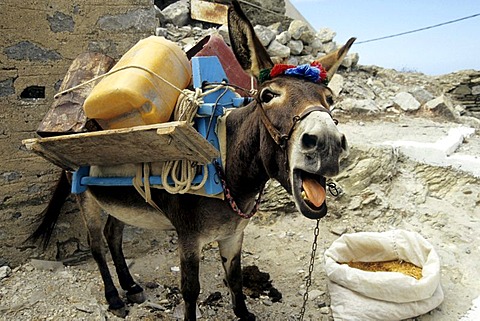
In some escape rooms, there may be items you’re given that you’ll need to carry with you. This is often the case in Trap Door’s rooms.
Why the Pack Mule is Needed
For example, in Bogeyman at our Red Bank location, the players are provided with a briefing folder full of information at the beginning of the game, and players must collect items called Totems as they play through the experience.
If you and your team find yourselves playing such a game, it’d be a good idea to put one or two members of the crew in charge of carrying those items around the space. This is a good way to promote Teamwork in Escape Rooms, while also ensuring important items aren’t forgotten.
The Wild Card

Never underestimate having a wild card in your group. Everyone knows one. They are someone who will blurt out a seemingly ridiculous answer and, by some backwards logic it will turn out to be right. These are the type of people who have “world experience” or are operating on such a higher (or lower) plane of reality that they just don’t think like other people. In extreme cases, they are sometimes known as idiot savants.
Why the Wild Card is Important
This kind of out of the box thinking is often times exactly what a group needs to succeed in an escape room and, let’s face it, even in life itself. Escape rooms are designed for this type of thinking. There will be clues to it that make it look obvious in retrospect, but making those connections sometimes takes one good wild card.
Wild Card Caution
But you don’t want too many wild cards in your deck, because if a few of them grasp on to a thing it could take the group in a direction that’s way off the path of the game, and that’s a clear and present danger to your time.
The Show and Teller

Once a clue has been ascertained, someone should make sure that all the players on your team are able to see it. This can be difficult, depending on the nature of the clue, of course. If it’s an object – or on an object – that can be picked up and/or moved around, place it in a location that’s visible to all the players, or pass it around the group!
Why the Show and Teller is Important
Too often, players miss seeing a clue and, as a result, miss the opportunity to provide the critical insight that solves the puzzle.
Sharing Clues
Another reason it is important to share clues with the whole group is because different players might have different pieces of the same puzzle/clue. If those players don’t know the other has the other piece, they might not put those things together until they’ve wasted time.
Someone in charge of showing the group new inventory objects bridges this gap. Remember, communication is the literal and figurative key!
Don't Get Too Competitive

Now obviously, someone can play multiple roles within a group, and if someone does, great, but remember, the point of escape rooms is to have fun.
Let Your Teammates Participate
Everyone knows someone who is super-competitive, but no one should be assuming all the roles in a group (unless you always play escape rooms by yourself, in which case, why are you reading this article?). Let other people participate: that’s always a great piece of advice for Teamwork in Escape Rooms.
Don’t be bossy, and don’t let someone else be bossy. That’s not to say argue it out because that would be a waste of time. But, with that being said, one person taking all of the roles has been proven to lead to losing games, as it does not promote Teamwork in Escape Rooms!
Remember Your Goal!
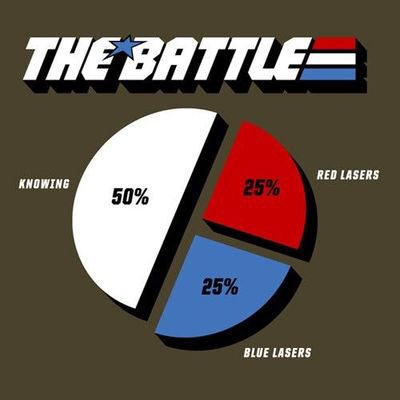
Another piece of advice that can often benefit first-time players – but that may also help even seasoned veterans – is to reverse-engineer puzzles whenever possible. This may seem like an obvious choice for some, but you may be surprised at how often players simply don’t know where to begin.
Be Strategic
If possible, figure out what must be solved first. Do you need a number combination to open a lock? Must you find a key? What are you trying to open first?
Strategy Ideas
Once you know what your goal is, you can begin to work towards it! If you need to find a word combination, maybe pick up that torn-up dictionary on the bookshelf. If you need to find a key, perhaps there’s a secret compartment somewhere in the room. Is the key buried beneath some of the items that are decorating the room?
As G.I. Joe said, “knowing is half the battle.”
Related Content
Featured Experiences
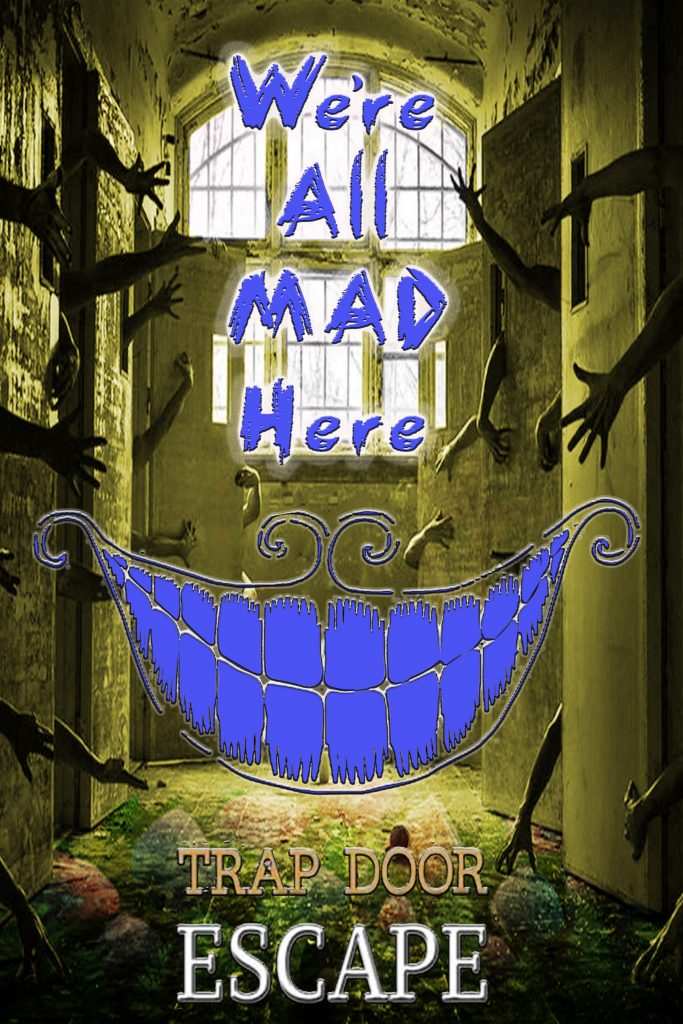
Travel down the rabbit hole and experience a brand new world that just keeps getting curiouser and curiouser in our asylum escape room.
$60 Per Player
You have 120 minutes to escape the theme at $60 per person plus tax. This is the largest escape room in the country, spanning upwards of over 4,000 square feet of playing space each! Large Private Groups are welcome, as these experiences allow player dispersement with ease. All bookings for this asylum escape room are private.
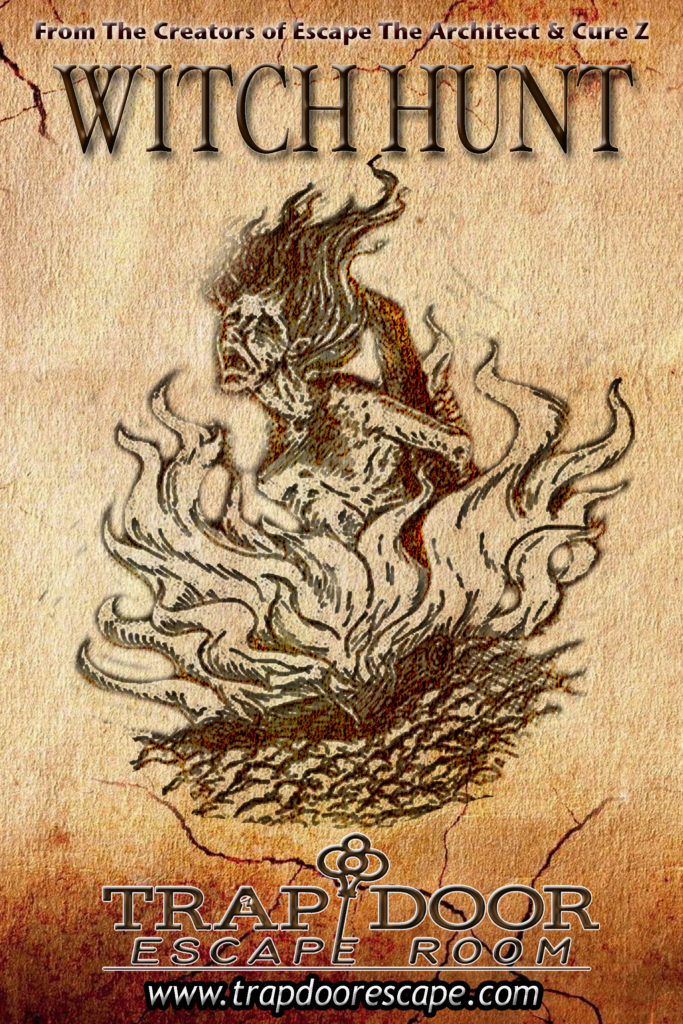
You are Constables for The Sheriff of Salem and are tasked with finding evidence of Witchcraft before the town hanging.
$39.99 Per Player
You have 60 minutes to escape, at $39.99 per person plus tax. At a minimum of 1,000 square feet of playing space, this theme is sure to provide a thrilling adventure. Witch Hunt is three times larger than the average escape room experience. Most importantly, however, all bookings are private.

Journey to the Top of the World as a Search and Rescue team on a mission to find a Missing Research Team.
$39.99 Per Player
You have 60 minutes to escape this theme at $39.99 per person, plus tax. At a minimum of 1,000 square feet of playing space, this theme is sure to provide a thrilling adventure. Everest is three times larger than the average escape room experience. All bookings are private.
Trap Door Escape Company
Trap Door Escape Room has 4 locations: 3180 Route 611 in Bartonsville, PA in the Poconos; 60 White St. in Red Bank, NJ; 34A Speedwell Ave. in Morristown, NJ: and 77 Wind Creek Blvd in Bethlehem, PA. The Red Bank location was the first of the 4 locations, opening in the fall of 2015. Morristown followed in the summer of 2017, and Bartonsville opened during the holiday season of 2018. Wind Creek is currently undergoing construction and will be opening in September 2022.
History
The idea came to Tone Purzycki back in 2011 after he wrote a screenplay that developed into a live-streaming game. The game revolved around an actor trapped in a situation and the audience had to solve puzzles to figure out where he was trapped. The “Find Me Event” had more than 1,000 people playing over the course of several hours. After the success of several other streaming events, the idea of an escape room was born.
Location
Each location has different rooms from which to choose. Our Morristown location is home to Day of the Dead, Witch Hunt, and The Greatest Freakshow. In Bartonsville, you’ll find Cure Z, F5 Tornado Escape, Fear the Bogeyman, Mad Hatter’s Tea Party, We’re All Mad Here, and Prisoner Z. In Red Bank we currently have Everest – our first 2 story escape room. Ripper of London is also available at this location. Our pirate themed games will soon be open at Wind Creek.
Trap Door Escape Room also offers team building, streaming events, and birthday parties. For more information on any of our games, prices, and locations, explore our website or call 570-234-3366
